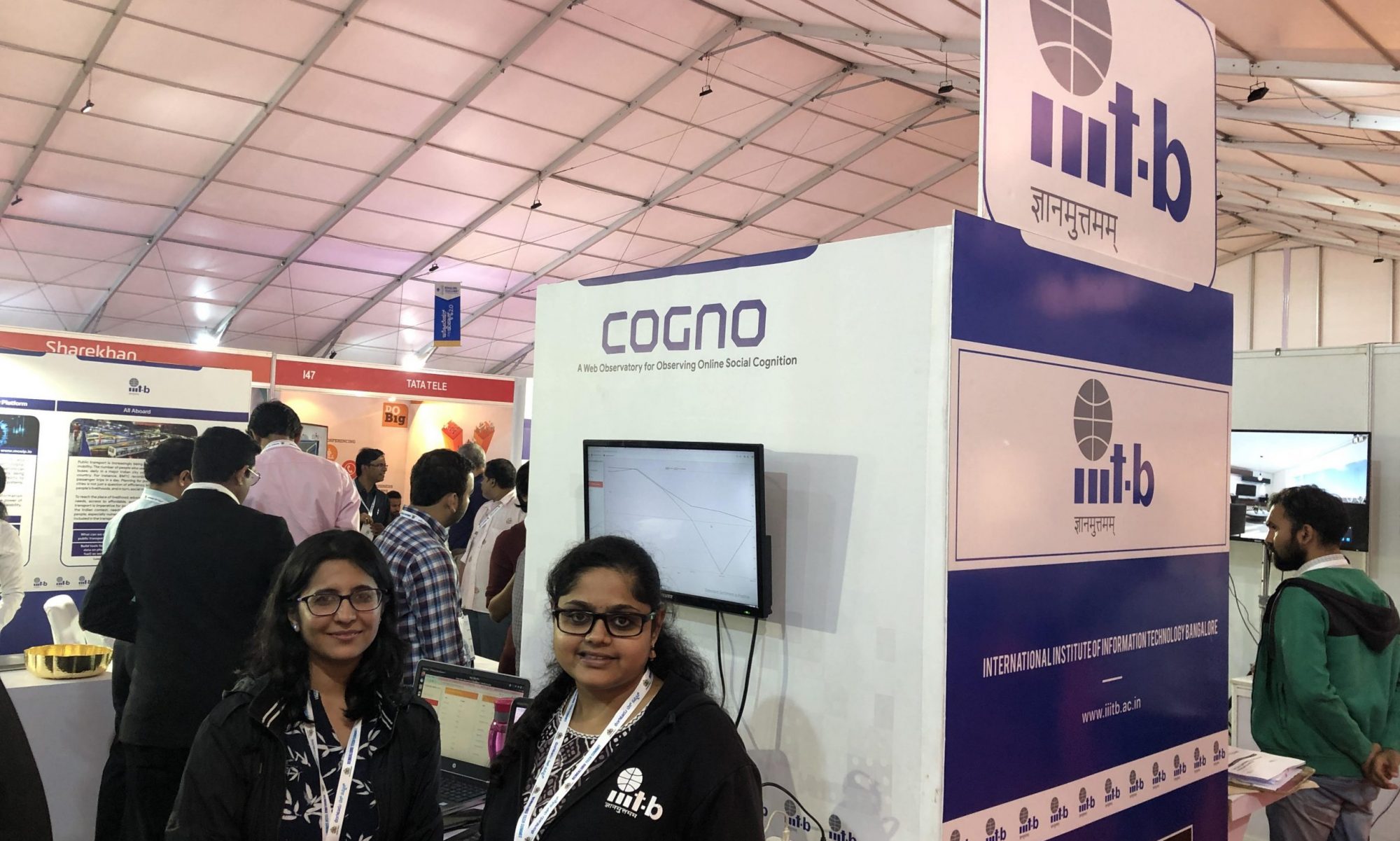Theme: Digital Public Infrastructures
IIIT-Bangalore, June 10 2024
REGISTRATION* (Hybrid Mode)
Call for POSTER CHALLENGE : WS4D DPI thinking competition!
Venue: R103, Ramanujan Block, IIIT Bangalore
Link for workshop live streaming : https://www.youtube.com/live/6Ae9q0NhFIo
The Web Science for Development (WS4D 2024) workshop is part of the Web Science research initiative at IIIT Bangalore. WS4D, started in 2019 brings together professionals from several domains, addressing different thematic concerns pertaining to the use of web and mobile technologies in developmental efforts. The theme of this year’s WS4D workshop is Digital Public Infrastructures. The workshop is a part of a week-long DPI Conclave with the next independent event following from 11 June. Details are given here .
WS4D 2024 is organised as a one-day event on June 10, 2024. The workshop features invited talks by visiting researchers from the Centre of Data for Public Good, IISc Bangalore and other invitees from other parts of India. The workshop would also involve a DPI thinking poster presentation competition. Interactive sessions and panel discussions are also planned for the workshop.
The workshop aims to foster a community of practitioners, researchers, entrepreneurs and students to jointly address socially relevant opportunities and challenges from the web and mobile technologies.
Tentative Schedule
| Time | Event | Speaker |
| 9:00-9:30 | Registration | – |
| 9:30 – 9:45 | Inauguration and Address by — Director, IIIT B & Dean (Academics) | Prof. Debabrata Das |
| 9:45 – 10:15 | DPI and the Four Internets | Prof. Srinath Srinivasa, IIITB |
| 10:15 – 10:45 | Techquilibrium : Bait the Byte | Dr. Mukund Raj, NABARD |
| 10:45 – 11:15 | Driving the Digital Public Infrastructure growth story with Data Exchanges | Dr. Jyotirmoy Dutta, CDPG, IISc |
| 11:15-11:30 | Tea Break | – |
| 11:30 – 12:00 | Privacy-Preservation ID Verification using Third Party Cloud Services and FHE | Dr. Srinivas Vivek, IIITB |
| 12:00 – 12:30 | Digital Twin for City-Scale Mobility Management and Planning | Dr. Raghuram Krishnapuram, CDPG, IISc |
| 12:30 – 13:00 | Lightning Presentations | |
| 13:00 – 14:00 | Lunch Break | – |
| 14:00 – 14:30 | Harnessing IoT, Big Data, and Cloud Computing for Smart City Innovation | Suresh Kumar. CDPG, IISc |
| 14:30 – 15:00 | Managing privacy in digital applications for public health | Dr. Srikanth T K, IIITB |
| 15:00 – 15:10 | Address by Wendy Hall | Professor Dame Wendy Hall |
| 15:10 – 15:25 | Tea Break | |
| 15:25 – 15:55 | Building an Inclusive ID Systems | Sasikumar Ganesan, MOSIP |
| 15:55 – 16:55 | Panel Discussion Topic: Role of DPIs in Sustainable Development | Panelists |
| 16:55 – 17:15 | Closing Remarks, Vote of Thanks, Networking and High Tea | – |
Registration* Details
- There is no registration fee.
- The total number of participants is capped at 30, and will be approved on a first come first order.
- Participants have an option to attend the workshop in hybrid mode. The link will be provided on registration.
- No accommodation is available for outstation participants.
Talk and Speaker Details
- Title: DPI and the Four Internets
Abstract: One of the fundamental challenges in DPI design is to resolve issues of ownership. No technological solutions are possible until we have a sound understanding of what ownership entails. In this talk, we will look into how the term ownership is interpreted in different contexts and their implications on public infrastructure design. When it comes to the Internet itself, there are at least four different ways in which ownership of the information space, are addressed. This is exemplified by the “Four Internets” model proposed by O’hara and Hall. In this talk, we will also address the Four Internets paradigm and its implications on DPI design.

Speaker Bio: Prof. Srinath Srinivasa heads the Web Science lab and is the Dean (R&D) at the International Institute of Information Technology – Bangalore (IIITB), India. Srinath holds a Ph.D (magna cum laude) from the Berlin Brandenburg Graduate School for Distributed Information Systems (GkVI) Germany, an M.S. (by Research) from Indian Institute of Technology – Madras (IITM) and B.E. in Computer Science and Engineering from The National Institute of Engineering (NIE) Mysore,
His research interests are in the area of Web Science– understanding how the WWW is affecting humanity; and how the web can enable social empowerment and capability building. Srinath has participated in several initiatives for technology enhanced education including the Edusat program by the Vishveshwaraiah Technological University, The National Programme for Technology Enhanced Learning (NPTEL), a Switzerland based online MBA school called Educatis, and IIITB’s educational outreach program with Upgrad. He has served on various technical and organizational committees for international conferences like International Conference on Weblogs and Social Media (ICWSM), ACM Hypertext, International Conference on Management of Data and Data Science (COMAD/CoDS), International conference on Ontologies, Databases and Applications of Semantics (ODBASE), International Conference on Big Data Analytics (BDA), ACM Web Science, etc. As part of academic community outreach, Srinath has served on the Board of Studies of Goa University and as a member of the Academic Council of the National Institute of Engineering, Mysore. He has served as a technical reviewer for various journals like the VLDB journal, IEEE Transactions on Knowledge and Data Engineering, and IEEE Transactions on Cloud Computing. He has also served as an Associate Editor of the journal Sadhana from the Indian Academy of Sciences. He is also the recipient of various national and international grants and awards, from foundations and companies like: EU Horizon 2020, UK Royal Academy of Engineering, Research Councils UK, MEITy, DST, Siemens, Intel, Mphasis, EMC and Gooru. Currently, Srinath also heads the AI initiative for the “Karnataka Data Lake” project by the Planning Dept of the Govt of Karnataka, to promote data and evidence-based planning and decision-making.
2. Title: Techquilibrium : Bait the Byte
Abstract: Evolving technologies for an ever evolving world pose exciting opportunities and challenges. Policy making should harness technology empower citizens through DPI while protecting privacy and ensuring security. An equilibrium of sorts to achieve sustainable development, economic growth and shared prosperity
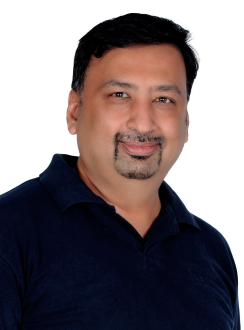
Speaker Bio : Dr. Mukund Raj has over 26 years of experience across various geographies in business process re-engineering, digital transformation, sustainable development, public policy, planning and implementing programs, establishing partnerships and resource mobilization for development projects through national and international organizations for successful human development, gender equity, and SDG localization.
Successfully managed multi-country programs and supervised multi-location teams and sub-national offices in both Private and Public Sector. Successfully leading initiatives in SDG Financing like Green economy and Carbon Monetization. Led partnerships with the government, think tanks, Public and Private Sector, CSOs, and academia for sustainable development advocacy. Conceptualized AI based technology modelling for SDG interventions budgeting.
3. Title: Digital Twin for City-Scale Mobility Management and Planning
Abstract: Urban mobility has become a major challenge in many Indian cities. Bangalore has been ranked the most congested city in India in terms of traffic for several years in a row. Digital twins can provide a way to improve urban mobility by enabling what-if analyses (e.g. making a street “one way”) and by helping city planners to make better infrastructure decisions (such as adding a new metro line). However, digital twins require city-scale traffic models which are based on a good understanding of the mobility patterns and mode choices of the citizens. Recent advances in AI indicate that with sufficient sensor data about traffic volumes, speeds and other information about the road network, it is possible to build city-scale mobility models to achieve congestion mitigation and transport optimization. Such AI-driven digital twin models leverage computer vision, graph neural networks, transformers and agent-based simulations. This talk presents an overview of a digital twin solution for urban mobility based on the IUDX (India Urban Data Exchange) platform. IUDX is a MoHUA sponsored project as part of the Smarter Cities Initiative of the Government of India. The talk also describes our initial efforts in building a traffic model for Bangalore in collaboration with the Bangalore Traffic Police.
Speaker Bio: Dr. Raghu Krishnapuram is a Senior Scientist at IUDX (India Urban Data Exchange), FSID, Indian Institute of Science. His work experience spans both academia and industry across continents over almost four decades. Raghu is an alumnus of IIT-Bombay and received his PhD from Carnegie Mellon University in 1987. He worked in the academia in the US until the year 2000. Between 2000 and 2015, he held various technical leadership positions at IBM Research India and IBM T J Watson Centre, NY, USA, where he led projects in the area of ‘Knowledge, Information, and Smarter Planet Solutions’ and ‘Cognitive Computing,’ with a particular focus on emerging markets. Raghu was with Xerox Research Centre – India, during 2015-16. Most recently, he was with the Robert Bosch Centre for Cyber-Physical Systems, Indian Institute of Science, Bangalore, and ARTPRAK, IISc, Bangalore.
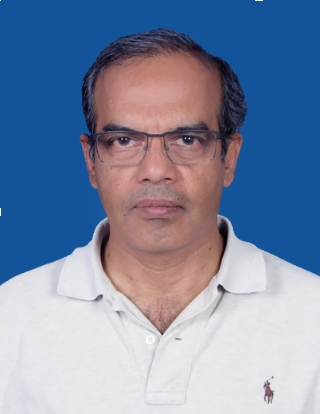
Raghu’s research encompasses many aspects of machine learning, computer vision, text analytics, artificial intelligence, and data mining. Many of his publications have a very high citation count, with the overall count exceeding 15,000. Raghu is a recipent of many best paper awards, including the IEEE Neural Network Council Best Paper. He has been recognized as a Master Inventor by IBM and has filed over 40 patent disclosures at the US Patent Office. Raghu is a Fellow of IEEE and the Indian National Academy of Engineers (INAE).
4. Title: Practical Privacy-Preserving Identity Verification using Third-Party Cloud Services and FHE
Abstract: National digital identity verification systems have played a critical role in the effective distribution of goods and services, particularly, in developing countries. Due to the cost involved in deploying and maintaining such systems, combined with the lack of in-house technical expertise, governments seek to outsource this service to third-party cloud service providers to the extent possible. This leads to increased concerns regarding the privacy of users’ personal data. In this work, we propose a practical privacy-preserving digital identity verification protocol where the third-party cloud services process the identity data encrypted using a (single-key) Fully Homomorphic Encryption (FHE) scheme. Though the role of a trusted entity such as government is not completely eliminated, our protocol significantly reduces the computation load on such parties. We implement our protocol using the Microsoft SEAL FHE library and demonstrate that secure demographic and biometric matching queries and age comparisons can be efficiently performed on batched FHE ciphertexts.
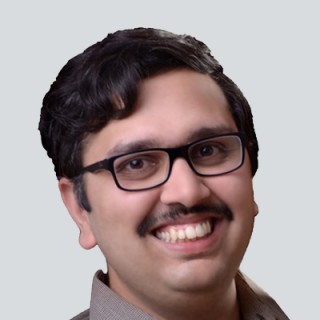
Speaker Bio: Dr. Srinivas Vivek is currently the Infosys Foundation Career Development chair professor at IIIT Bangalore. Previously, he was a postdoctoral researcher in the Cryptography group at the University of Bristol. He has obtained his doctoral degree from the University of Luxembourg, master’s degree from IISc, and bachelor’s degree from NITK Surathkal.
He has served as a member of the editorial board/PC of IACR Trans. CHES, CARDIS, AsianHOST, Indocrypt, and other venues. He is also a recipient of the DST INSPIRE faculty award from Govt. of India. His research is focused on the design, analysis, and implementation of countermeasures against side-channel attacks, and homomorphic encryption schemes and their applications.
5. Title: Driving the Digital Public Infrastructure Growth Story with Data Exchanges
Abstract: India has witnessed an unprecedented digital revolution through the ‘India Stack’ that is unlocking the economic primitives of identity and payments at population scale through AADHAR and UPI. The third and final piece of the stack is establishing a new governance model through easy access and exchange of data.
The real power of data is realized when there is seamless flow of data from the data provider to the data consumers and the data silos are broken. How the data is managed, exchanged and used is crucial to successfully resolving complex problems in domains such as agriculture, urban, geospatial and healthcare etc. A data exchanges is a platform which acts as an enabler to solve these problems and build innovative solutions. When developed for public good, the data exchange platforms are ideally open source, based on standardized data models and have robust security, privacy and accounting mechanisms that facilitates their easy adoption across the digital ecosystem.
This talk will focus on the idea of Digital Public Infrastructures and Data Exchanges in particular and how they are a critical tool for Digital transformation of a society. I will discuss the benefits of seamless flow of data from the providers and the consumers with some use cases and how business cases could be developed around these.
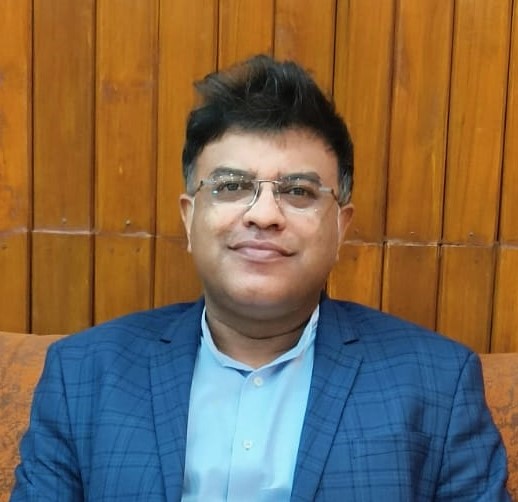
Speaker Bio: Dr. Jyotirmoy Dutta has close to twenty years of experience holding key positions in academia, industry, and research, including six years in digital transformation. He has taught at institutes of national importance, contributed to research projects with international collaborators, contributed to technical standards, policy frameworks and consulted startups in emerging technology space.
At present he works as a Senior Scientist at the Centre of Data for Public Good, FSID, Indian Institute of Science Bengaluru. Working at the cross section of technology and policy, he contributes to large scale digital public infrastructures in Agriculture, Urban, and Geospatial domain. He holds a PhD in Microsystems, from the Shiv Nadar Institution of Eminence, Delhi-NCR with several peer reviewed publications and conference presentations.
6. Title: Harnessing IoT, Big Data, and Cloud Computing for Smart City Innovation
Abstract: This talk presents typical applications in the Smart City domain and the crucial roles of IoT, big data, and cloud computing in realizing them. It explores the types of data generated by these applications and the role of data exchange in fostering open innovation and developing AI/ML applications. Additionally, it discusses the data-driven applications being built and their extension to domains like agriculture, e-governance, and more at the state and national levels.
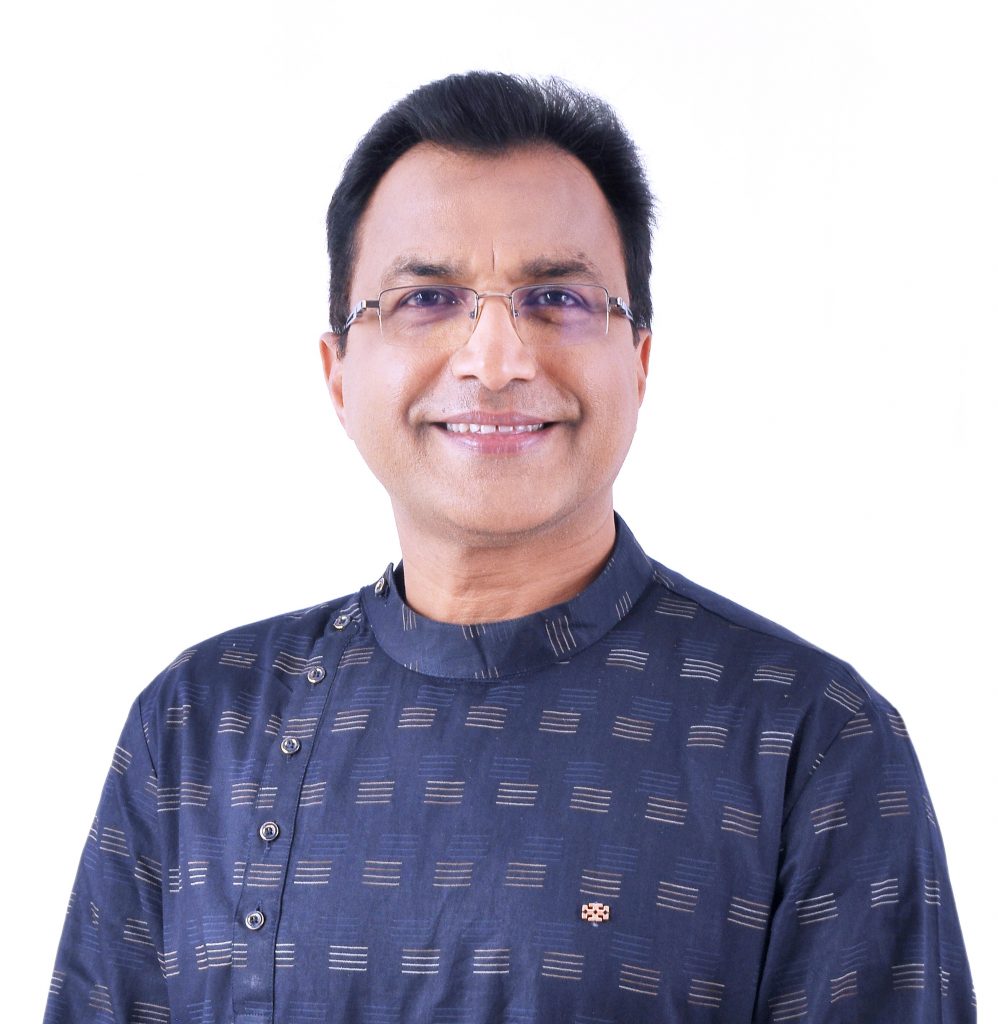
Speaker Bio: Mr. Suresh Kumar has over three decades of experience in defense, telecom, automotive, semiconductor, IoT, cloud computing, and smart city domains. He has worked across startups, government agencies, and European and American organizations, building many award-winning teams, products, and businesses.
Suresh is currently working at the Indian Institute of Science (IISc) Bengaluru, leading the Data Exchange project. which is an open-source, cloud-based platform developed and deployed at the national level to facilitate the discovery, exchange, and use of data from various sources, promoting open innovation and application development.
Suresh holds an engineering degree in Electronics and Communication from Kerala University, Software specialization from the Indian Institute of Science, and Business Management from the Indian Institute of Management Bengaluru and is also the author of the book “7 Steps to Joyful Living”.
7. Title: Managing privacy in digital applications for public health
Abstract: DPIs provide an efficient path to rolling out robust citizen-centric applications at scale. Ensuring privacy of personal data for such applications is a key requirement, and this often requires domain and region-specific approaches. Public health applications can benefit from the services and capabilities of DPI and similar platforms, especially mechanisms for data protection and consent management. However, deploying applications that ensure privacy of health data across a variety of healthcare settings and demographics poses a number of challenges. In this talk, we explore some of these challenges, and discuss approaches for managing privacy that can be enabled by digital platforms, as well as limitations to such approaches.
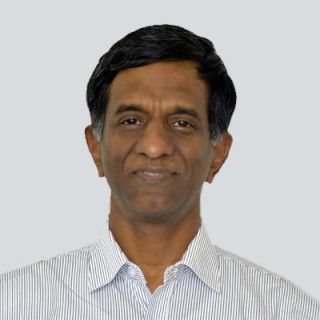
Speaker Bio: Dr. T K Srikanth is a Professor in Computer Science at IIIT Bangalore. His research interests are in systems for the management and analysis of healthcare data, data privacy, as well as computer graphics. He is a co-convenor of the E-Health Research Center at IIITB, and is actively involved in multiple collaborative research projects in healthcare.
Prior to joining IIITB, he had extensive experience in the software industry, in India and in the US. He has a Ph.D. in Computer Science from Cornell University and a B.Tech. in Mechanical Engineering from IIT Madras.
8. Title: Building an Inclusive ID Systems
Abstract: In today’s digitally connected world Identity is one of the key factors that the environment consumes to make decisions. From our social media handles to email addresses our identities are multiple and they differ based on the context. With Identity at the centre of this revolution, governments across the globe are attempting to leapfrog into the digital age. Governments are looking for a faster and more efficient way to deliver service to their citizens & residents. Foundational identity is one of the easiest yet most effective ways to achieve this goal. While this explosion is good, it has also created a digital entry barrier for many. This barrier is a curse when it comes to digital governance and service delivery across the world. We will discuss several ideas and strategies adopted by the open-source project – MOSIP to achieve the goal.
We will explore what goes into building, designing and securing inclusive digital Identities across multiple cultures.
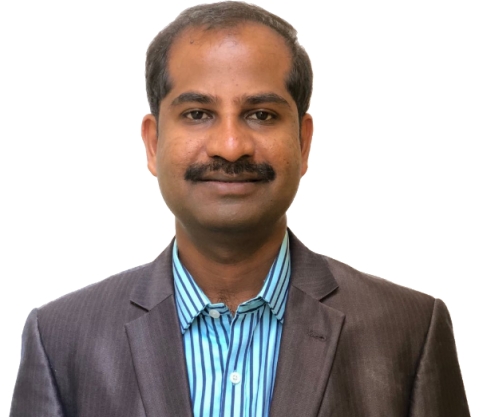
Speaker Bio: Mr. Sasikumar Ganesan has over 20 years of experience in Building DPI, Platforms, Security and Robotics. Security advisor for several large Government of India Projects. Ex Chief Security architect of Aadhaar, Co-Authored e-sign paper to convert the old style digital signatures and electronic signatures to new cloud-based identity-driven digital signatures, Author of the open sourced “Rahasya – Advanced cryptography for forward secrecy” used by all of the account aggregator.
Sasi is actively involved in building digital public infrastructure and advices on security for most of the government initiatives on Digital India. Sasi actively supports MOSIP a Foundational Identity project set to provide foundational digital identity across the world. The platform aims to provide secure and privacy-enabled digital identity across the world.
Sasi has co-authored and published various Standards & RFC for large-scale adoption of security digital initiatives. His designs of delivering services over PKI are the most widely adopted design across the Government of India and its ecosystem partners. Other than this Sasi is part of various forums in defining security standards.
As a software architect Sasi has architected large-scale platforms from identity, security analytics, IOT Device identity, Data classification, and DRM solutions and has scaled these solutions to meet high-performance requirements. Sasikumar holds a Master’s in Computer Technology from Coimbatore Institute of Technology.
